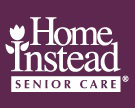Tipperary Home Instead Senior Care have welcomed the recent publication of the Government’s National Positive Ageing Strategy 2013.
Increased longevity is a sign of economic and social progress. This ‘Strategy,’ encourages us to recognise our increased longevity as one of the greatest achievements of our time. The four national goals from the strategy are listed hereunder.
National Goals
(1) Remove barriers to participation and provide more opportunities for the continued involvement of people as they age in all aspects of cultural, economic and social life in their communities according to their needs, preferences and capacities.
(2) Support people as they age to maintain, improve or manage their physical and mental health and well being.
(3) Enable people to age with confidence, security and dignity in their own homes and communities for as long as possible.
(4) Support and use research about people as they age to better inform policy responses to population.
In Ireland, at the last Census in 2011, there were approximately 535,000 people aged over 65 in the population, representing an increase of 14.4 per cent since 2006. Ireland will experience an unprecedented ageing of the population in the first half of the twenty-first century and by 2041 there will be an estimated 1.3 million to 1.4 million people aged over 65 years, representing 20-25 per cent of the total Irish population.
 The National Positive Ageing Strategy Vision begins “Ireland will be a society for all ages that celebrates and prepares properly for individual and population ageing.” Home Instead Senior Care believes that to achieve this, each and every one us will need to take greater responsibility for our own ageing.
The National Positive Ageing Strategy Vision begins “Ireland will be a society for all ages that celebrates and prepares properly for individual and population ageing.” Home Instead Senior Care believes that to achieve this, each and every one us will need to take greater responsibility for our own ageing.
One issue to consider is how to stay at home, in the event that you suffered an accident such as a broken leg, or had a stroke or developed an illness that affected your mobility. Often, people in hospital are unable to return home for simple reasons such as lack of downstairs bathroom. A “stay home,” plan needs to consider how you could live at home on one floor, if you lacked the mobility to use stairs.
The plan needs to consider how you would manage with daily tasks such as cooking or showering or housekeeping whilst you are convalescing at home. You need to have conversations with family members and understand what help they could bring. No one wants to be a burden on family members, so it is important to know exactly what commitment sons and daughters can give, in the event you need their help.
Sometimes it is not appropriate for family members to assist with tasks such as showering, or family members may not be able to visit every day. In such instances, it is important to budget for private home care. As we age, so our budgeting must reflect new costs associated with ageing positively at home.
For more information on this topic Telephone 0504 91100 or check for more ideas on successful ageing, which can be found on the Home Instead Senior Care FACEBOOK page.

Leave a Reply